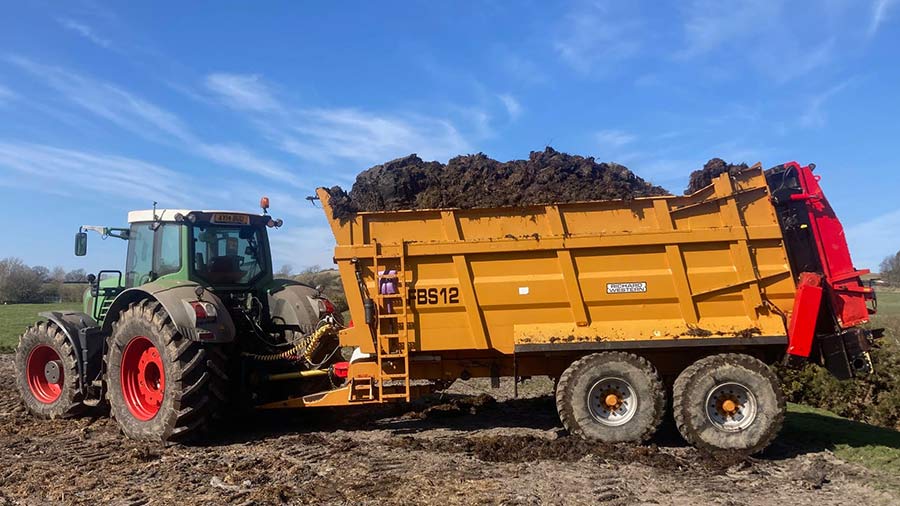This Week in Farming: Fert strategies, Welsh farm policy and debt
 © Richard Suddes
© Richard Suddes Welcome to another edition of This Week In Farming, our round-up of the best news, views and features from the past seven days.
Here’s five of the best topics we’ve covered this week and a look ahead to what’s coming up in the next edition of the FW podcast.
Welsh and Scottish policy updates
It’s the turn of Welsh and Scottish farmers to discuss and debate the future of farm support this week.
In Wales, minister for rural affairs Lesley Griffiths published several amendments to the Agriculture Bill currently making its way through the Senedd.
The changes, brought about by the Labour government’s co-operation agreement with Plaid Cymru, commit the draft law to make the resilience of agricultural businesses a factor when directing support at the sustainable production of food and goods.
Farm unions have welcomed the changes but say they don’t go far enough.
In Glasgow, where NFU Scotland is holding its annual conference, irritation is rising at the Scottish government’s lack of prioritisation for food production.
The union has issued an ultimatum to the Scottish government to commit to ensuring all direct support is in the bottom two tiers of the new environmental support schemes so that none of the current funding pot is lost to groups outside farmers.
Borrowing advice
Last week saw yet another rise in the Bank of England base rate, pushing it up to 4%.
As borrowing costs rise, business editor Suzie Horne spoke to farm business advisers about what farmers need to know before seeking finance from banks, including pitfalls that may see applications rejected.
There’s no bigger cost to most farmers than buying additional land, but how much on the market is going back to farmers?
Last year, Scotland saw its biggest summer of sales in acreage terms for 10 years, but land values have been propelled higher in the uplands by strong interest from forestry and natural capital buyers.
Fertiliser strategies
Bagged fertiliser prices have fallen steeply since December but remain well above long-term averages.
Keeping cropping profitable amid this and other input price rises is a tricky job, and the arable desk have continued their focus on it this week with a look at what eight farmers are doing to cope.
In this separate article, we also took an in-depth look at how livestock manures can be applied to standing crops without leaching nitrates or damaging the fledgling plants.
Farmers Weekly Question Time
Did you hear about the launch of our latest event, Farmers Weekly Question Time?
The first in a series of four panel discussions, which featured Defra farm minister Mark Spencer, took place recently at Harper Adams University.
Catch up with the highlights of who said what, or listen back to the whole show in this special podcast edition, right here.
And if you’d like to come along to the next event at the Scotland’s Rural College campus in Fife, which will include NFU Scotland president Martin Kennedy, then you can sign up here.
Stack the cash
Making a viable business as a new entrant is tough, but enterprise stacking is helping Somerset farmer Ollie White make the most of every part of his 50ha organic county council tenanted farm.
He’s producing beef, sheep and poultry, all rotationally grazed and moved daily on permanent pasture, increasing efficiency of pasture use and reducing parasitic burden, he says.
Find out what he’s learned so far, including access to a cheap supply of labour, right here.
And if you’re looking ahead to calving, don’t miss this piece on five risk factors to manage in beef cattle.
Listen to the FW Podcast
Don’t forget the latest edition of the Farmers Weekly podcast with Johann Tasker and Hugh Broom.
Listen here or bring us with you in the cab by downloading it from your usual podcast platform.
